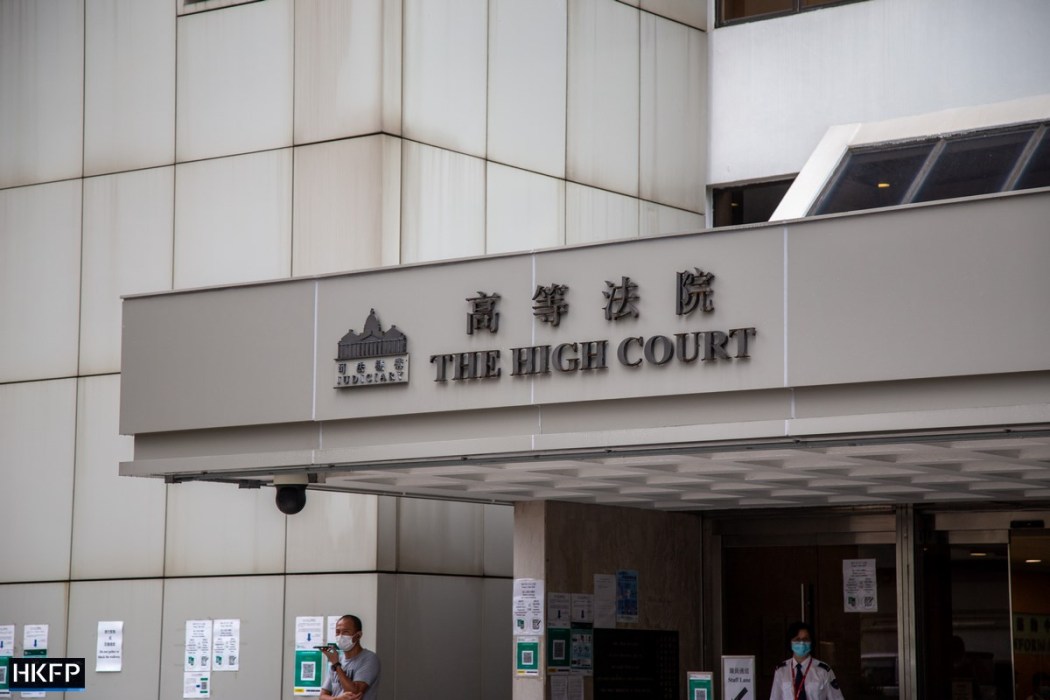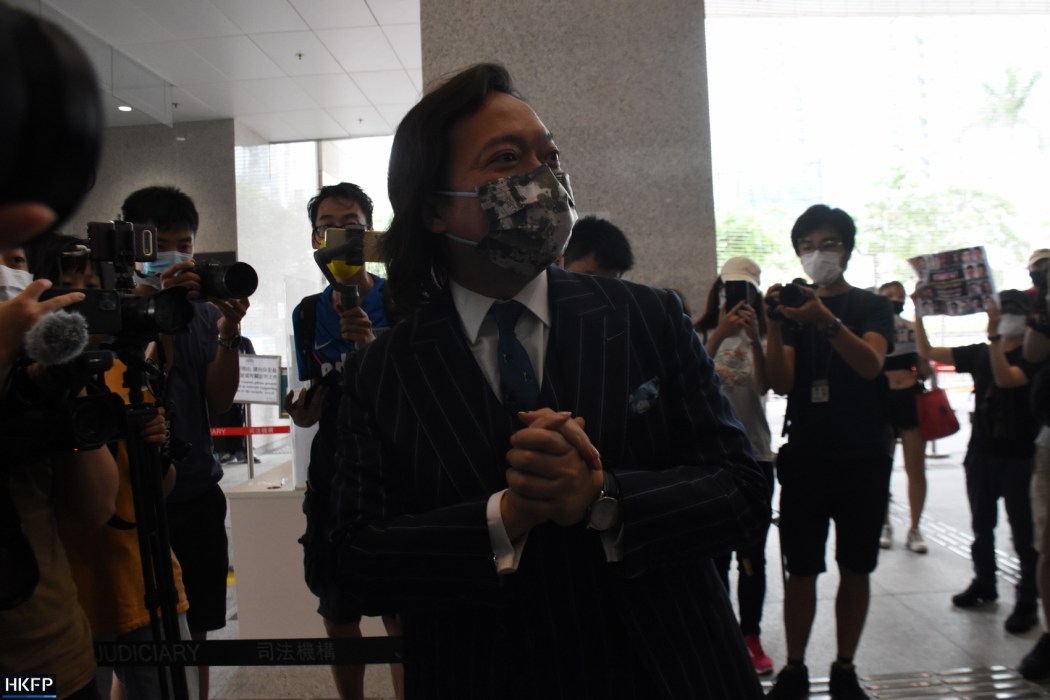Hong Kong’s first-ever trial under the controversial, Beijing-imposed national security law has begun. Prosecutors opened the case by quoting a history scholar as saying the “Liberate Hong Kong, revolution of our times” slogan was used with an intention to separate the city from China.
Defendant Tong Ying-kit, 24, appeared on Wednesday in front of High Court judges Esther Toh, Anthea Pang and Wilson Chan, who were handpicked by Chief Executive Carrie Lam to hear national security cases in city.

The activist is facing accusations of incitement to secession and terrorist activities, with “causing grievous bodily harm by dangerous driving” as an alternative offence to the terrorism charge. Tong pleaded not guilty to all three offences on Wednesday; he could face up to life in prison if convicted in the High Court.
He was arrested during a protest on July 1 last year, after he allegedly rammed a motorcycle displaying a protest flag reading “Liberate Hong Kong, revolution of our times” into three police officers in Wan Chai. The government declared a day later that the slogan was “pro-independence, secessionist or subversive.”
In his opening statement, Deputy Director of Public Prosecutions Anthony Chau said Tong had intended to have his high-profile act on the anniversary of Hong Kong’s handover to China to be reported and covered by the news.
Chau cited history professor Lau Chi-pang of the Lingnan University as saying the popular protest slogan – in the context of Hong Kong’s political language – was raised for the “objective of separating the HKSAR from the People’s Republic of China.”

According to the scholar, the line “revolution of our times” had the meaning of causing a change of times by adopting ways to cause a change to the regime or the social system.
“[B]y extension of that, the words mean rejecting the governance of the PRC and the HKSAR, and attempting to replace the current regime or social system by way of changing the regime or social system,” the prosecution said.
“Liberate Hong Kong,” on the other hand, was said to mean recovering the city which has “fallen into enemy hands,” and could be interpreted as not admitting the Hong Kong as part of China, and seeing the Chinese authorities as an enemy.
Chau quoted Lau as saying the slogan was used by former localist leader Edward Leung in his campaign to run in the 2016 New Territories East Legislative Council By-election. The scholar deemed the meaning of the words on July 1 last year was “not significantly different” from the language context where used by the localist, Chau said.

The prosecution also referred to Lau’s analysis of the use of the slogan on July 21, 2019, when pro-democracy protesters defaced the Chinese national emblem outside China’s top office in Hong Kong. The professor said the China Liaison Office in Sai Wan was formerly the Hong Kong branch of the state-run Xinhua News Agency, which represented Beijing in the city. The vandalising of the national emblem and facilities at the liaison office therefore amounted to rejecting Chinese governance, the professor opined.
“Professor Lau concluded that the fundamental agenda and meaning of the words are to cause the consequence of separating the territory of residence from the state sovereignty,” Chau said.
Protest flag unfurled in court
During the afternoon’s proceedings, the prosecution played around 12 minutes of CCTV footage, open source videos and police clips, which showed a man – said to be Tong – driving his motorcycle from the Eastern Harbour Crossing to the Wan Chai area.
Chau presented the “Liberate Hong Kong” flag as evidence as court staff unfurled it and showed it to the judges and counsels.
The prosecution summoned its first witness – police superintendent Tam Wan-yee, who led two platoon teams in the Wan Chai area on the day of the protest. She said that – when officers arrived at the the Wan Chai Hennessy Road at around 3 pm – they saw rubbish bins, bricks and fires on the roads.
Barrister charge
Tong’s 15-day trial is set to be a test case for future national security cases. So far, police have arrested 115 people under the sweeping legislation and more than 50 were charged.

The activist is represented by Senior Counsel Clive Grossman and barrister Lawrence Lau, who was assigned by the Legal Aid Department. Lau is among 47 pro-democracy figures charged with subversion under the same security legislation.
When asked if there was a conflict of interest for Lau to be Tong’s defence, the department said on Monday that the lawyer was assigned “in accordance with established assignment criteria.” The case was given to Lau before he was arrested and charged, the department said.
“Information submitted by the prosecution did not involve any confidential matters. Therefore there does not exist any situation where Mr Lau can make use of confidential information obtained in the case for the purpose of preparing defence in his own case in future,” the Legal Aid Department said.
On Tuesday, the Court of Appeal in Hong Kong threw out Tong’s bid to challenge a decision by the Secretary for Justice Teresa Cheng, who ordered him to stand trial in front of a three-judge panel instead of a jury.
In rejecting Tong’s appeal against the Court of First Instance’s refusal to grant him leave to launch a judicial review against Cheng’s certificate, the appeal court said a jury trial, while conventional, was not an “indispensable element” in a fair trial.
The appeal panel consisting of three judges also said Tong’s judicial challenge may delay or derail his criminal proceedings, which runs counter to a provision in the security law to handle cases in a “fair and timely manner.”
Police superintendent Tam will continue to testify on Thursday. The prosecution indicated they will call upon a total of 22 witnesses to give statements in court.
Support HKFP | Policies & Ethics | Error/typo? | Contact Us | Newsletter | Transparency & Annual Report | Apps
Help safeguard press freedom & keep HKFP free for all readers by supporting our team
























